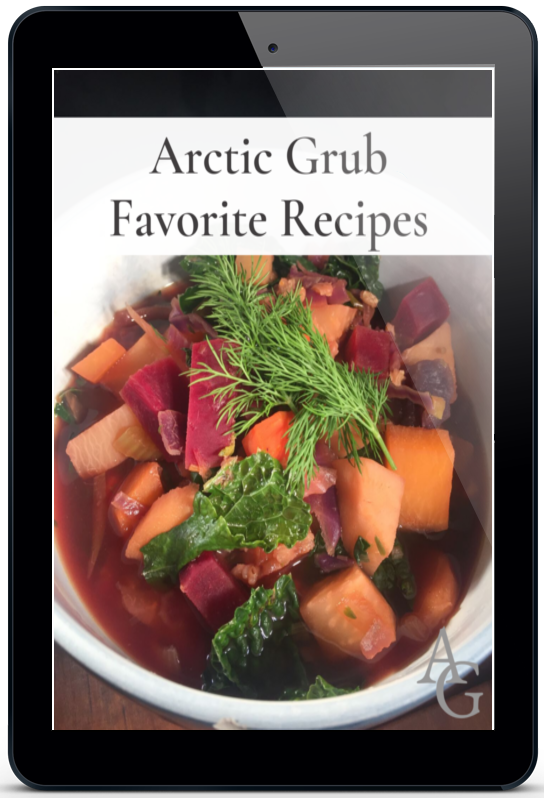January is a meager month in Norway, where it’s typically so cold and dark nothing seems to ever be able to survive outside. This is when we have to turn to our pantry for food, and to the mason jars we worked at filling over the summer and autumn with all types of fruits and vegetables that were in season at the time. Preserving has been a huge part of Norwegian food culture always, just because the growing season for food is so short. The winters are long and brutal; the summers extremely short with very unreliable weather and temperatures. This makes it extra important to stash away any and all produce cultivated in the short period where these thrived.
My mother would have an entire room downstairs crowded with cans, mason jars and all types of containers of pickled plums, pears, pumpkins, cucumbers, carrots and onions, just to name a few. To this day, I think this was her “magic touch” to the dinners and desserts she served daily, as they all were incredibly flavorful and not lacking anything at all. I always believe people become more creative the less they have to work with; taste, texture and color becomes even more important, and little goes a long way when designing a dish.
My mother always used to make pickled pumpkin, a vegetable not very common in Norway, as you rarely see this vegetable in stores. Back in the day it was looked upon as an exotic food, something that we didn’t quite understand, but my mother was passionate enough about it to make it every single year. I can’t say that I recall any of my friends’ mothers doing this, then again at the time I probably wasn’t too curious. When staying at hotels across Norway, I have seen it on “koldtbord” tables (our version of the Swedish “Smorgasbord”, a buffet of a variety of cold plates) and it’s also added to fancy plates in fancy, high quality restaurants in Oslo.
With the American celebration of Halloween becoming more and more popular in my home country, I can only assume the use of pumpkins in food will increase, and not just be for decorating purposes anymore. Pumpkin is low in fat, cholesterol and sodium and a great source of vitamin B6, A, C and E among other nutrients. Perfect January food!
Pickled pumpkins are typically added as an accent to a main dish for a slightly piquant, acidic and flavorful addition. They can also be added to soups, rice, stews or salads for extra flavor or as an addition to a (plant based) cheese tray or vegetable pate. Experiment with this delicious condiment and you will be amazed at how much this can brighten and lift up a meal!
SYLTET GRESSKAR (Pickled Pumpkin)
2 lbs pumpkin, cleaned, peeled and diced into cubes
2 cups apple cider vinegar
1 cup water
750 grams or 3 cups sugar
1 tsp salt
40 grams or about 3 tbsp fresh ginger, chopped
15 whole cloves
10 whole allspice berries
2 cinnamon sticks (some people also like to add a vanilla bean pod)
1 -2 bay leaf
1 whole chili pepper (optional, leave this out if you don’t like heat)
Prepare /boil some clean mason jars in hot water to clean them and set aside.
Bring the vinegar, sugar, water, ginger and spices to a boil in a large pot and add the diced pumpkin. Bring down to a simmer and cook until the pumpkin pieces are clear and tender, 3-4 minutes. Using a slotted spoon, scoop out the pumpkin bits and place into the prepared mason jars.
Continue boiling the liquid until it thickens, about 15 minutes. Pour the liquid over the pumpkin in the mason jars, screw on the lids, and let sit in room temperature overnight. Keep the jars in a cool and dark spot until ready to use!
Image from matprat.no












Thanks for posting the recipe, Sunny! The pickled pumpkin look really beautiful, like bottled sunshine! I look forward to trying out the recipe after getting back from Norway – the pumpkins in the garden should be ready by then (if the monkeys don’t get to them first). 🙂
Another interesting post, Sunny! Thanks for the picked pumpkin recipe, all those spices sound really tasty!
Thank you Saucygander!! Always great to hear from you!
Lokks really great and sounds very yummy!
Love, Dina
Thanks, Dina!! 🙂
Awesome to hear, Sophie – thanks for the report!! 🙂